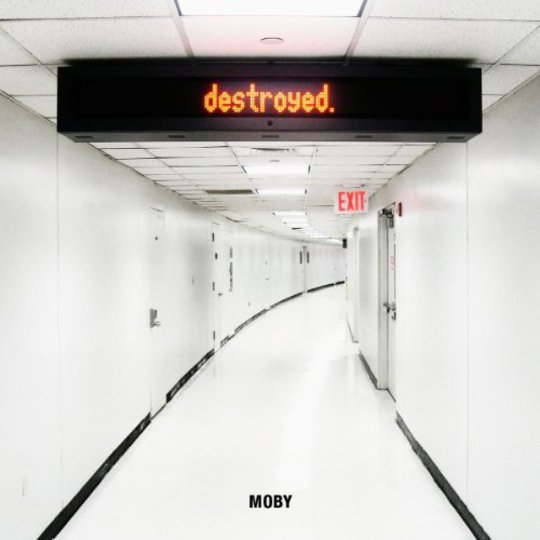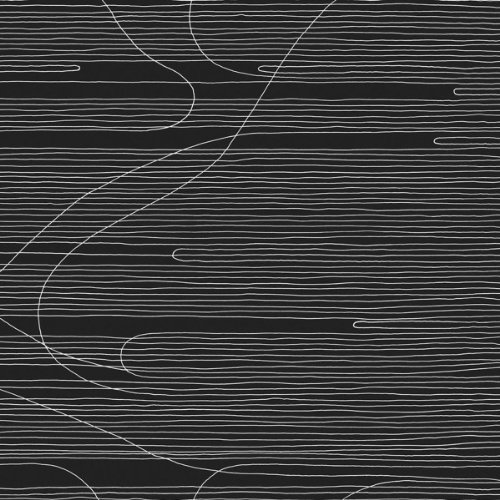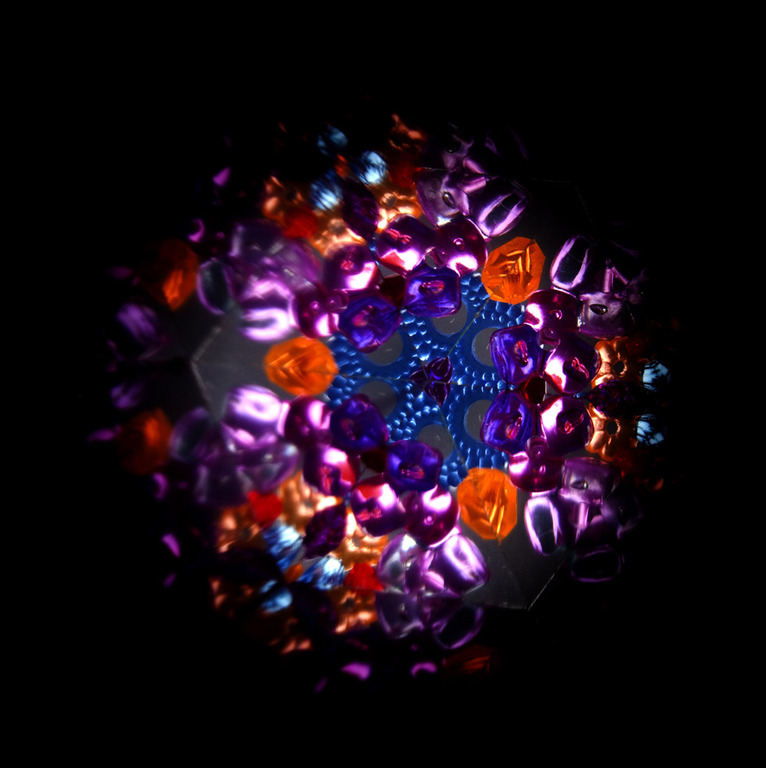I frequently get Moby confused with the monk character played by Hugh Jackman in Aronofsky’s The Fountain. They both have shaved heads, they both hug trees, they both seem to live in bubbles. There is something drippy and artlessly strange about both of them. What is certain is that Moby would make a good space monk. You could see him moving quietly through the naves in a futuro-Gothic astromonastry, humming gospel-inflected plainchant to himself. Sitting in eerie repose as his bare cell hurtles through the stratosphere, pouring his devotion into a Protools-ready rosary. Perhaps he is also suitably corrupted: his quiet demeanour belying sins of the flesh with Natalie Portman, the earthly pleasures of celebrity.
But while Jackman’s monk at least has both the excuse that he’s dying, and that he’s a visual character in a visual film, Moby as an artist has no such get out. His lack of real musical introspection, the way the world seems to fail to touch his music, the emptiness of its deliberation - all undercut the monk’s mission. Moreover he seems to drip on forever. Ever since Play leaked through the doors and windows, sucking the air out of electronica, he’s been floatily present. Inured by wealth Moby appears to thrive in different atmospheric conditions to the rest of us. His music solidly occupies the big burnished centre, but always dresses up in marginal costume. It speaks lightly of frontiers, but is ever moored in right-field. Like an expensive satellite tarnished with shit (everything in near-space is smeared in a thin film of human excrement) it sails through the corporatesphere with majestic indifference to art.
Now, firmly in his self-styled 'post-superstar' phase, Moby is shooting for contemporaneity issuing a release that befits the conditions of the industry. Destroyed was announced on his blog, and there will be no major label push. Accompanying the album is booklet of photography, possibly aerial shots of the earth taken by Moby before and after matins. An EP prefaces the album like illuminated script. The space monk it seems, is staking his claim to an authentic future, but what kind of future does this album hint at?
'The Broken Places' takes us to a retro-future 1996. Here everyone has forgotten what Boards of Canada sounded like, giving license for every electronica artist under the twin suns to rip them off again, and again, in eternal recurrence. A helixical offcut from Music Has the Right... spirals into our collapsing galaxy. A tiny synth part warbles like a prototype nano-bee, confused by wifi signals.
M83 is one of the major touchstones here, aided by the hand of engineer Ken Thomas who previous worked with the French duo. 'Be The One' is an aquatic take on the adrenalised synth-gaze of early period M83, a glassy wall of mass-synth, crashing like an exorbitantly extended wave. It bears M83’s more recent cinematic nostalgia, with a shamelessly hopeless sense of pastiche - “wait for me” it cries while arriving years too late. A little known fact about the sea is that everything in it is covered with a thin layer of faeces. This is the drowned world, that Moby appraises from his bubble, watching us all die while taking suspiciously lazy notes.
'Sevastopol' and 'After' both carry a wan tribalism. In the year AM.450 (After Moby) we are all reduced to microcultural groups foraging for CDs. Moby leads us through the dark night, we come across servers, taller than the highest mountain, tributes to forgotten gods. Moby tells us his offerings were once used as a bed for a Top Gear segment where Jeremy Clarkson tortured a gypsy with a zip gun made from a car antenna. We cower, not understanding his words. The bit-crunch shuffle, as pale and droll as anything Thom Yorke ever mustered, sends us fleeing back to the water to drown ourselves.
There are myriad futures here, to tragic to enumerate in full. 'On The Day' is basically Bowie's 'Heroes' remixed by Yellowcard. The lyrics "she tried to count the ways, but found she couldn't count" foretell a future of innumerate women, just as we are all intellectually impoverished by Moby’s output. The majority of the album is the future of all dinnerparties, the dinnerparty that never ends, a spooling aeon of trite politeness, as your dry android host projects his Facebook photos into your retina for eternity.
A couple of the trademarks are present. While most of his use of female vocals here are Eighties indie cinematic waifs, gospel appears on 'Lie Down in the Darkness' where big-lunged samples are covered in a predictable craqueleur. Disembodying black voices, outside of projects of Afro-futurism, has always been Moby’s most suspect trick, and it seems he hasn’t grown out of it. Moby’s future is one where the ghost of Mahalia Jackson is kept in a museum cube, assisted and mastered by technology, we slot in a Facebook credit and her head appears delivering auto-minstrelry into our Euro-regional German vidphones, the brand name of which we can’t be bothered to pronounce.
Perhaps in the future Moby will come across a non-derivative sound. He will be touched by the spark of divine understanding, and floating vigorously over to his Spacelab4000 will channel the alchemy of volatile, beautiful, truthful music. But he appears caught between two worlds, the celebrity hit-maker and the authentic artist, failing to bridge from one to the other. If Destroyed is the standard he is surely, as Einstein said of space divorced from time, doomed to fade away into mere shadows.
-
5Daniel B. Yates's Score






















